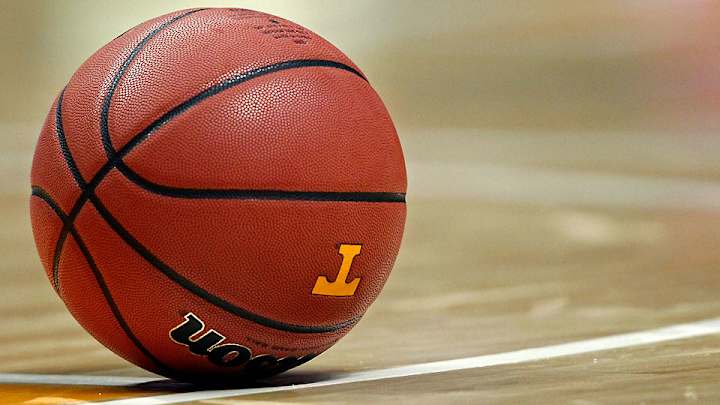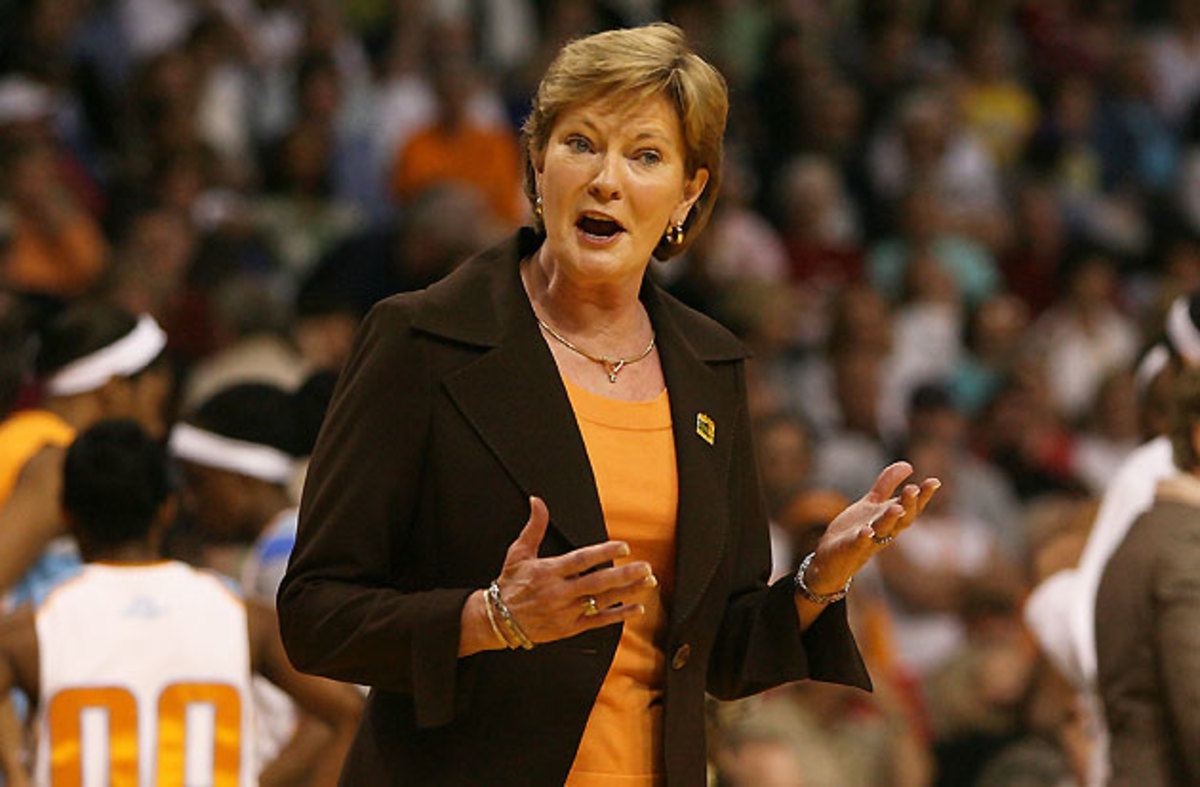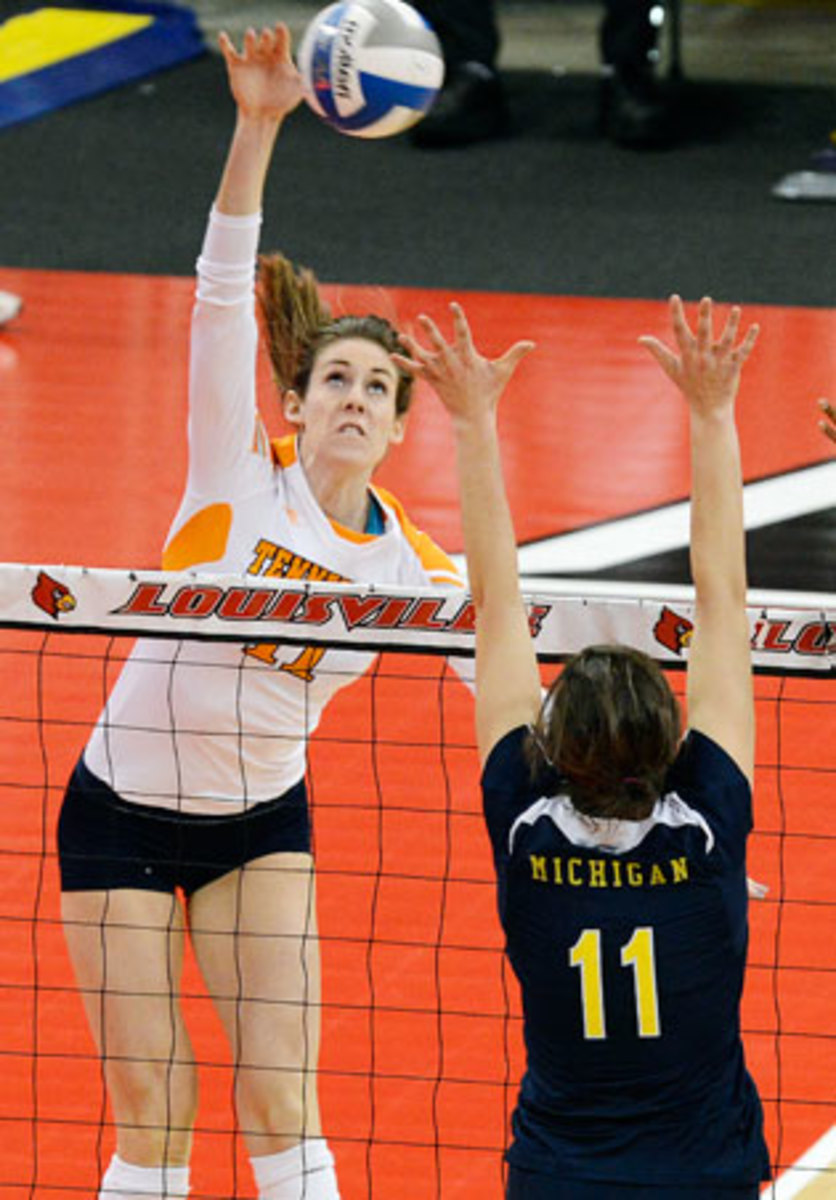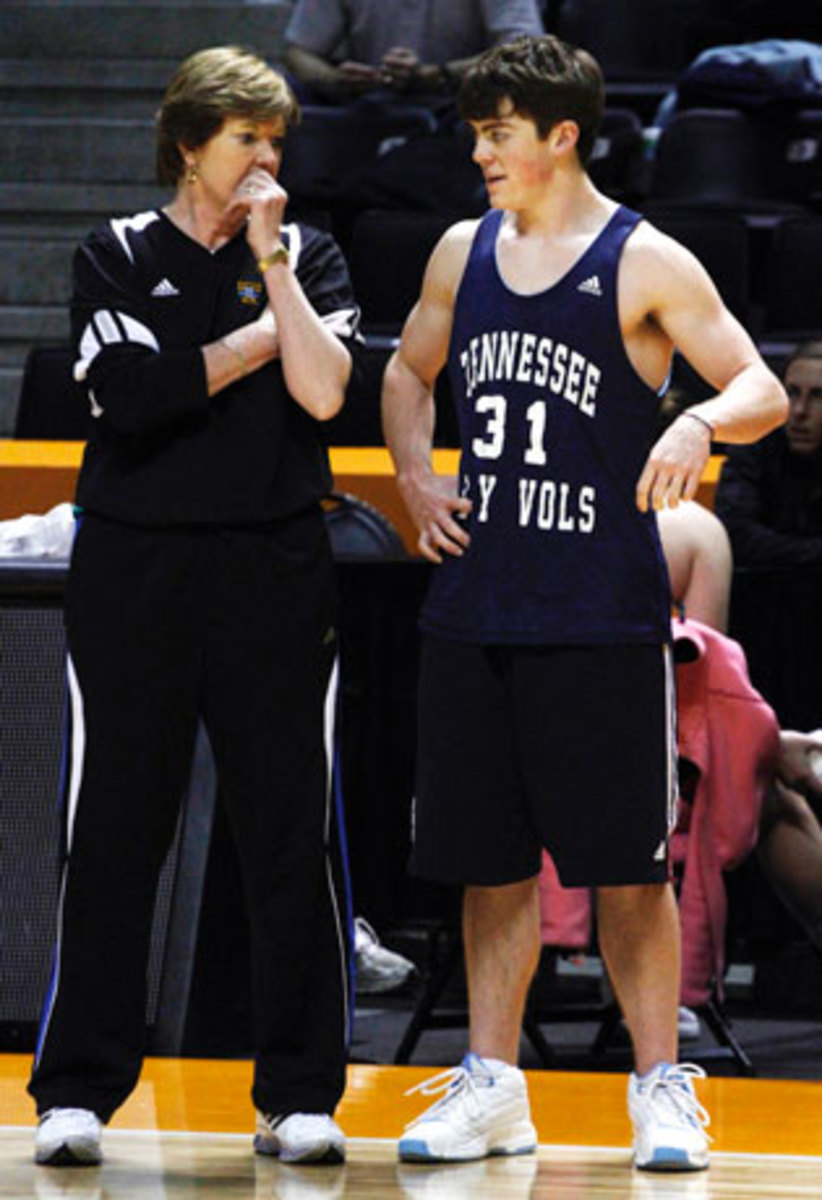Decision to roll back 'Lady Vols' name causing division at Tennessee

More than anything, Nathalie Mansson wanted to feel at home when she signed with Tennessee as a high school golfer in 2008. Recruitment took the highly touted prospect from Stockholm, Sweden all across the U.S. But Mansson eventually zeroed in on a Lady Volunteers golf program that made her feel comfortable in Knoxville.
“I went on three official visits: One here, one to Arizona and one to Florida,” said Mansson, who played for the Lady Vols until graduating in 2012. “This was like home. It felt like a family here. When I got over here on my official visit, they were so proud of the whole Lady Vol name. For me, coming from a different country without my family and no one here, I really liked that and it helped me make my decision.”
Soon the “Lady Vols” name that helped lure Mansson and so many others to Knoxville will largely disappear. On Nov. 10, 2014 the university announced plans to transition all men’s and women’s athletic teams under the “Power T.” The decision coincided with a dual-rebrand between academics and athletics that would make the “Power T” the universal logo for the University of Tennessee, not just its athletic department. Under the new plan, which coincides with a shift from Adidas to Nike in athletic apparel, all sports programs except women’s basketball will be known as “Volunteers,” the nickname that’s defined the men’s side for decades. The change will be official on July 1.
UT first formed its women’s athletic department prior to the 1976-77 academic year, and the school had separate athletic departments until 2009. During that span the Lady Vols grew into one of the most impactful women’s brands in college sports. Lady Vols teams have won 11 national championships, including eight in women’s basketball, and 68 conference titles. The basketball team is the only program to play in all 33 NCAA tournaments since the NCAA began sanctioning women’s sports in 1981-82. An average of 11,038 fans attended Lady Vols home basketball games during the 2013-14 season, the highest average in the country.
But that success hasn’t been relegated to basketball. The Lady Vols softball team has reached six Women’s College World Series in the last 10 years. The women’s swim team has finished in the top 15 at the NCAA Championships in a school-record nine consecutive seasons. Tennessee won two women’s indoor track and field national championships (2005, 2009) within the last decade. That’s why many former student-athletes view the Lady Vols decision as a blow to a historic brand.
“Former Lady Vols always look after current Lady Vols,” Mansson said. “I got really upset because it felt like they took away my, and others’, identity.”
*****

Tennessee decided to roll back the Lady Vols name as part of the school’s campus-wide rebrand, one that included a Nike audit and a university-conducted audit. According to a UT statement, the audits recommended “the consolidation of logos and word marks in order for better branding consistency, with the Power T serving as the primary mark for campus and athletics.” However, Tennessee opted to maintain the Lady Vols name and logo for its eight-time-national-championship-winning women’s basketball program “because of the accomplishments and legacy of the championship program built by Coach Pat Summitt and her former players.”
Chris Fuller, Tennessee’s senior associate athletics director for external operations, said the university had been considering changes to its branding long before its move to Nike. Fuller said that from a marketing perspective, one brand simply makes more sense than two.
“This is something we knew for years and years,” Fuller said. “We were really inconsistent across the board, not only with color but with marks, with fonts, with numeric stuff -- we were all over the place. We felt, and I think Nike felt, when you make a change of this magnitude and you’ve been 18 years with an apparel manufacturer, this is the time to try to streamline your brand.”
Fuller said that while many outside the university have reacted negatively, those inside the athletic department have welcomed the move to one brand.
“I think internally, this movement towards ‘One Tennessee’ has been real,” Fuller said. “This idea that we’re moving from having, right or wrong, a very separate culture to being one family, I think internally that ‘One Tennessee’ mentality is very real.
Katie Collier overcomes cancer, knee injury to fulfill basketball dream at UW
“Externally, I don’t think we’ve gotten there yet. I wouldn’t say we’re surprised by the reaction and I wouldn’t say we’re surprised by how and where it’s been driven. I tend to be most empathetic to our former and current athletes, in terms of what their opinions are relative to the change, because I think those are the really authentic opinions. I think there are some other opinions that are really agenda-driven.”
Agenda-driven or not, many former Lady Vols have been very vocal with their reaction. Leslie Cikra first heard the news from a text message from her sister. Cikra, an Ohio native and former All-SEC volleyball player at Tennessee (2009-12), noticed immediately that several ex-UT athletes were distraught by the school’s decision.
“At first, I didn’t have time to process it and realize what it meant for women and for the University of Tennessee,” said Cikra. “After letting it sink in and talking to people about it and seeing the stir that it brought up on social media and Facebook and things like that among all of my fellow Lady Vols, I realized how big of an impact it really was having. I was really shocked and taken aback by it.”

Cikra decided to engineer her own response. She started BringBackTheLadyVols.com, a website that collects letters written by former Tennessee student-athletes about what the Lady Vols name means to them. As of Feb. 18, the website had 28 letters from former UT players.
Cikra’s collection of letters isn’t limited to student-athletes affected by the nickname change. Three former Tennessee football players contributed testimonials, including Tauren Poole, who started at running back from 2010-11. Former Lady Vols basketball player Glory Johnson wrote a letter, as did current golfers Anna and AJ Newell. The web site also sparked a “Bring Back the Lady Vols” Facebook page, which currently has more than 800 likes.
Tennessee state representative Roger Kane (R) helped organize a rally outside the Lady Vols’ Dec. 20 women’s basketball game against Stanford in Knoxville. Kane’s daughter, Holly, threw javelin on UT’s track and field team from 2007-11. According to the Knoxville News Sentinel, the rally lured about 100 people to Pat Summitt Plaza across the street from Thompson-Boling Arena.
Kane also hosted a “Lady Vols Day on the Hill” in front of the Tennessee state capitol in Nashville on Feb. 8. The event allowed former athletes to voice their opposition to the school’s decision to state lawmakers. The community’s response has not been surprising to those who wore the orange and white, says Tricia Weaner, a former UT swimmer.
“It means something more than just a logo,” Weaner said. “It’s a way of life. For that to be taken away is taking away a connection from the past and present. It’s just hard to connect when you don’t see that Lady Vol logo, because that’s something that all of us fought for when we competed.”
On Nov. 11, the day after Tennessee’s announcement, Weaner started an online petition calling for the reinstatement of the Lady Vols name and logo. Initially she hoped to garner around 50 signatures. By Nov. 12, 600 people had signed it. In less than a month it had surpassed 6,000 signatures, and it has more than 7,000 signatures as of Feb. 18.
“I’ve signed the petition online,” Mansson said. “I don’t know how much the people who are actually making these decisions will look at this. But they’re aware that a lot of people are unhappy with the decision.”
*****
Tyler Summitt remembers how important the Lady Vols logo was to his family. Tyler’s mother, Pat, spent almost four decades building Tennessee women’s basketball into one of the country’s premier programs. She won 1,098 games en route to eight national championships. Before stepping down in 2012 due to a diagnosis of early onset dementia, Pat Summitt also made it a point to cultivate the Lady Vols brand on and off the court.

“Anytime we went to the SEC tournament, or anywhere, they’d better have that logo right,” Tyler Summitt said. “Sometimes they’d have the Power T and not the Lady Vols, and she’d be upset… As a coach you try to build a culture. Mom’s culture was a championship culture. That Lady Vol brand -- the Tennessee Lady Vol phrase -- was associated with that culture.”
When Tennessee announced its decision to roll back the Lady Vols name and logo, the notion that women’s basketball would keep the name was bittersweet for many former Lady Vols. None of them questioned the role Summitt played in the growth of women’s athletics, but they felt the decision minimized the success of other sports.
“My first thought was, my team won a championship, you know?” Cikra said. “A team I played on during my junior year won an outright SEC championship for the first time in volleyball history at Tennessee. We had an almost .800 winning percentage over the course of my career. Volleyball is not the only sport that had that success. You look at women’s golf, tennis, soccer -- SEC championships and NCAA appearances across the board.
“Pat Summitt is an iconic female in this industry. To keep it for basketball, I think, is the right thing to do. But the press release that Tennessee put out said they wanted to re-brand into ‘one Tennessee.’ How can they argue that but keep basketball separate? It’s putting basketball up on a pedestal, and they’ve done the work and put time in, but so has every other sport at the university.”
Kelsey vs. Kelsey: Buckeyes' Mitchell, Huskies' Plum lighting up scoreboards
Tyler Summitt, who is now the head coach of another team with “Lady” in its name: the Louisiana Tech Lady Techsters. He said his family was happy that Tennessee decided to keep the Lady Vols name and logo for the basketball program. Other nationally ranked women’s programs continue to use “Lady” in their nicknames, like Baylor’s Lady Bears and Georgia’s Lady Bulldogs. Georgia even uses a unique cursive-G logo, not unlike the Lady Vols’ own logo.
Summitt says the term “lady” is unique to women’s hoops. “It gives the women’s basketball team an identity,” he said.
Not everyone disagreed with Tennessee’s decision. USA Today columnist Christine Brennan called the Lady Vols nickname “antiquated and discriminatory” in a Nov. 12 column, and she criticized UT for keeping the name and logo for women’s basketball. Kristine Newhall, a professor at the McCormick School of Sports Management at the University of Massachusetts at Amherst, told Inside Higher Ed in a Nov. 17 story that the term “lady” is demeaning in the context of a sports nickname, adding that “it has too many historical connotations that disadvantage female athletes.”
Former Lady Vols who spoke with SI.com disagreed with that assertion.
“Only a good woman is called a lady,” Mansson said. “In England, for example, if you’re a lady, you’re a really, really respected person. To be a lady, for me, means that you’re a highly respected and well-known person, which I feel like every Lady Vol is trying to be in their sport and academics and everything.”
Added Weaner: “That Lady Vol logo is such a powerful force. You hear people say, ‘Here come the Lady Vols.’ That is in no way, shape or form demeaning. It’s empowering, if anything.”
*****

Two days after the school announced its decision, Tennessee AD Dave Hart spoke to Knoxville radio station Sports Animal AM 990. Hart echoed Fuller’s assertion that the internal response to the decision within Tennessee’s athletic department had been positive.
“I met with all of our coaches individually, and then we all met collectively,” Hart said in the Nov. 12 interview. “Our coaches to the person, all our head coaches, have strongly endorsed and supported this decision. I met with each of our women’s teams, and those meetings were extraordinarily positive. So internally -- I know if you’re on the outside, you’re looking externally, and I understand that -- but internally this has been very well-received.”
Hart also said the logo will not disappear. In fact, he said Nike is committed to providing Lady Vol merchandise at retail. “It’s not going away,” Hart said “and we’re going to celebrate that history. But we’re also going to celebrate the future.”
Through a UT spokesman, Hart declined an interview request from SI.com. But others say the internal response has not been as positive as the university describes. Three sources within the athletic department, all of whom asked to remain anonymous due to their current connections to UT, told SI.com that many coaches, players and administrators are unhappy with the school’s decision. They said many within the department worried about the future of the Lady Vols brand when Tennessee combined its men’s and women’s athletic departments.
Despite loss, Bruce Pearl relishes emotional return to Tennessee
“One thing I’d noticed is, even in the last couple of years with Adidas, there have been less and less Lady Vol logos,” one source said. “There have been some, but not nearly as much as when we had two separate departments. That’s something I’ve taken note of in the last two years. It was used very sparingly. But for them to say basically, ‘You aren’t even referred to as a Lady Vol anymore,’ that is something I never thought would’ve been possible.”
Cikra said many inside the university want to defend the Lady Vol name and logo, but they don’t feel comfortable doing so.
“I have emails from people’s personal emails supporting me but not wanting to spark a fire within the administration,” Cikra said.
There’s a chance the decision could ultimately affect Tennessee’s bottom line. Several former Lady Vols said donors have expressed concern about the announcement. Like many women’s athletic programs, much of the Lady Vol fanbase is unique to women’s sports at Tennessee. Many of those fans don’t shell out money to watch their male counterparts.
Susan Richardson Williams, a former associate athletic director at Tennessee and former 12-year member of the university’s Board of Trustees, said some people have threatened to withhold donations.
“I’ve heard a lot of concern from donors, some who frankly have said they’re not going to donate anymore,” said Williams, who now runs Knoxville consulting firm SRW & Associates. “Now, whether they follow through remains to be seen. I don’t want to hurt the university. This is our university, we love the university, we love the programs. I don’t think anyone wants to see the university hurt. But we would love it if they would rescind this decision and go back to keeping the logo for all women’s sports.”
The UT Board of Trustees will travel to Memphis for its regularly scheduled winter meetings on Feb. 25-26. A Board spokesman said the Lady Vols nickname isn’t currently on the agenda for the meeting, but many former student-athletes hope to continue their fight. After all, that’s what they learned to do during their time as Lady Vols.
“We feel like the more power we have behind it and the more people become aware of how much it really is gong to affect the university,” Cikra said, “the better chance we have.”
